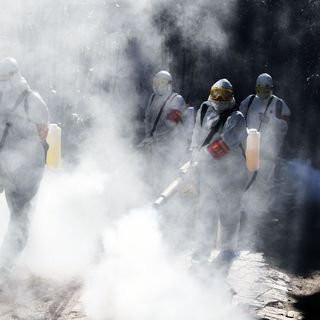At the beginning of the Covid19 pandemic, when news broke that people (with the privilege of being at home) would have to prepare for an elongated period of isolation, it seemed like a fantasy come alive. Introverts came out of the woodwork to rejoice; work-from-home advocates finally got their dearest wish; and those who had come to abhor the everyday grind could now seek indefinite solace in their beds. Approximately a month in, however, the jubilation has all but disappeared, and inexplicable tiredness has set in. Being at home all day, every day, semi-horizontal most of the time, oscillating between cooking, cleaning and watching Netflix, has lost its charm. Suddenly, it has all become overwhelmingly tiring.
Perhaps it’s the constant barrage of news about migrant workers not being able to isolate at home because they’re simply not being able to reach home, that has put into perspective just how broken our society is. Perhaps it’s the fear of having Covid19, or infecting loved ones with it, while not being able to get tested properly, that has caused constant fear and anxiety. Perhaps it’s the fact the government is dropping the ball on fighting this pandemic, or that the celebrities people used to admire are now proclaiming from their mansions that they’re like everyone else, or the fact that the number of coronavirus deaths are increasing, or rumors that the lockdown may be extended — all of which has become a relentless source of perpetual fatigue.
This lethargy is in a tussle with mental health, feeding off of the anxiety and depression this pandemic has caused those stuck in isolation. Experts suggest we’re heading for a massive mental health crisis, as the global population deals with the traumatizing coronavirus pandemic. Unable to fix anything, most of this population has resigned itself to frantically scrolling for the news, expressing disdain over police brutality targeted toward migrants, and emotionally avoiding the gravity of the situation. This might not seem so tedious, but spread over weeks, with the possibility of it stretching months, and just the thought becomes exhausting.
Another explanation for this lethargy plaguing those stuck inside homes is that we’re all experiencing a severe lack of stimuli. In the outside world, we interact with dozens of people on a daily basis, encounter new situations, people-watch, and do general great-for-health milling about, all of which has now been confined to a house with a formidable-seeming door. “People start getting lethargic when they don’t have positive inputs into their small worlds,” a University of Houston clinical psychologist, John Vincent, told Wired. Essentially, when there’s a dearth of stimulus to respond to, the energy we usually amass to respond to the stimulus disappears along with it, leaving fatigue in its wake, in a process of deconditioning, or reversal of behavior.
Related on The Swaddle:
New Research Sheds Light on How Long Coronavirus Can Survive on Cardboard, Plastic and Steel
All these stresses combined, according to the Centers for Disease Control and Prevention, can cause changes in eating patterns, sleeping or concentrating difficulties, and increased consumption of alcohol and drugs — all of which can contribute to developing fatigue.
Take sleeping for instance — some of us, now unencumbered by long commutes or rigid work times, have created space in their days for more sleep, which has interrupted well-established sleeping patterns. Too much sleep, according to Harvard Health, especially that which is constantly interrupted or fitful, can “upset the body’s rhythms and increase daytime fatigue.” On the other end of the spectrum, many plagued by the anxieties that accompany this pandemic, or handling more-than-usual housework and care work, are having trouble sleeping, which also contributes to lethargy during the day.
Before the Covid19 pandemic, the idea of home was once this refuge, the thought of finally reaching which would usher in relief, and a promise of rest. Now, even as home becomes the only place some of us can be, we realize life’s stresses have not only disappeared, but amplified. It’s important, however, that this exhaustion is dealt with — through periodic breaks, hobbies, or therapy — because breaking this quarantine is not an option.




